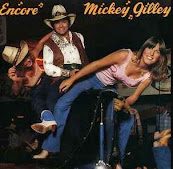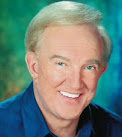I just woke up about 20 minutes ago (I work nights) and I went to a news feed on my home page and seen the news that country music icon, Loretta Lynn, passed away earlier this morning at the age of 90. I first knew of Loretta, by face, before I knew her name. She used to do television commercials for Crisco. As a little kid I'd see those commercials...sometimes there would be a guy in them that I later found out was her husband...but at the time I didn't pay much attention to screen detail so if her name appeared on the screen identifying her I didn't notice. I only noticed her and the overall commercial for Crisco and how she reminded me of some of my relatives with her mannerisms and the way she spoke. She'd end the commercials with a catchphrase, too.
As I got older I began to learn more and more about country music...Loretta, in addition to the Crisco commercials, would pop up on Hee Haw frequently. There are, and will be, numerous new websites and blogs that will show up on the internet beginning today that will detail Loretta's life and career. In an effort to not look like a carbon copy of all of those memorial sites, I'm inserting my own thoughts/opinions, in addition to looking back at her career, as a way to come off different. The thing to know about Loretta, if you're familiar with her career at all, is how she kept the roots of her origins alive within the songs she either wrote or recorded. Her earlier successes in the 1960s, prior to her major breakthrough, are all tied into an association with The Wilburn Brothers. She was part of their touring ensemble (1960-1968) and a cast-member of their long running syndicated television series, 1963-1971.
Loretta made a name for herself by the mid 1960s...she'd been releasing singles since 1960. "I'm a Honky Tonk Girl" reached the Top-20 in 1960. She signed to Decca in 1961...teaming up with record producer Owen Bradley for the first time. This artist-producer relationship would last nearly 20 years. Loretta's first Top-10 hit soon followed...a single called "Success". The song had been recorded by Loretta in the fall of 1961 but wasn't released as a single until the spring of 1962. Loretta had a couple more Top-10 hits ("Before I'm Over You" and "Wine, Women, and Song") before teaming up with Ernest Tubb for the first time in 1964. Their first duet recording, "Mr. and Mrs. Used to Be", was a major hit which spawned a duet album in 1965. In addition to the The Wilburn Brothers it was Ernest Tubb that also played a major, major role in Loretta's eventual launch into super-stardom. "Blue Kentucky Girl" hit right around the time of her duet with Ernest Tubb, "Our Hears Are Holding Hands". That song was written by Bill Anderson. "Blue Kentucky Girl" became Loretta's first signature song after it became a hit in the summer of 1965.
Loretta was on her way to becoming a country music super-star everything was set in motion, in hindsight, in early 1966. She released a topical single in January called "Dear Uncle Sam". She wrote the song and it's about a woman's thoughts when it come to watching her husband have to go off to war. It reached the Top-10 but it was her next single, "You Ain't Woman Enough", that introduced an assertive side to Loretta's songs. This song is about a woman (Loretta) confronting the other woman in her husband's life. The song spawned a self-titled album which reached number one on the Country Album chart. It was Loretta's first number one album on Billboard's Country Albums chart. In November 1966 came the song, "Don't Come Home a Drinkin'". This song, and it's immediate predecessor, began to establish Loretta as a sort of feminist icon of the era. Women singers of all music formats had never had much success with the types of songs Loretta was writing and that Owen Bradley was finding for her. Loretta's solo recordings from this point onward became massive hits...and she continued a duet partnership with Ernest Tubb for the remainder of the decade. Some of her iconic country music hits in the late '60s included "Fist City", "Your Squaw is on the Warpath", "You've Just Stepped in From Stepping Out on Me", and in this era of feminist anthems Loretta issued "Woman of the World Leave My World Alone" which hit number one. A few months later she and Ernest Tubb issued a comical duet, "Who's Gonna Take the Garbage Out", and it's reached the Top-20.
In the 1970's Loretta Lynn was the super-star of country music female artists...with two close rivals during most of that decade being Tammy Wynette and Dolly Parton. In 1970, her third single release, happened to be an autobiographical song called "Coal Miner's Daughter". This recording became her new signature song and her lifetime anthem. It also became her professional nickname...introduced as "The Coal Miner's Daughter, Loretta Lynn!!" in a lot of her TV appearances. The song would inspire an Oscar winning movie. In 1971 she teamed up with Conway Twitty and the two of them became a powerful duet for the next 10 years. The duo was often referred to as 'Conway and Loretta' and they enjoyed dozens of hits together as well as several duet awards from the CMA, ACM, and the Music City News organization. As a duo she and Conway had 12 Top-10 hits during a 10 year period (1971-1981) ...6 of those singles reaching number one including "After the Fire is Gone", which won a Grammy; "Louisiana Woman, Mississippi Man", and "As Soon as I Hang Up the Phone". Her solo recordings were also hitting the Top-10 with regularity. "You're Lookin' At Country", "One's on the Way", "Love is the Foundation" were massive hits...and she had a pair of controversial hits (at the time) called "Rated X" and "The Pill". In 1977 she had what turned out to be her final number one, "Out of My Head and Back in My Bed". She would continue reaching the Top-10 the rest of the decade. She had her final Top-10 hit with "I Lie" in 1982. The previous year she and Conway had their final Top-10 hits as a duo: "I Still Believe in Waltzes" and "Lovin' What Your Lovin' Does to Me".
In 1979 Loretta began appearing in television commercials for Crisco...and this is where I first knew of her. As a child of the 1980s I'd see her grace the TV screen advertising Crisco, appearing on Hee Haw, and showing up on other country music programs. She did commercials for Crisco for practically the entire 1980s decade. Her touring never decreased. She became a member of the Grand Ole Opry in 1962 and she remained a member until today. Once an Opry member passes away they're no longer a member of the organization. She joined the Opry roster in September 1962...and so she was a member for a full 60 years. Loretta's career and her impact in country music and on the people she knew and the fans of country music was enormous. She was one of the last surviving members of country music royalty in my opinion. There aren't too many left.










